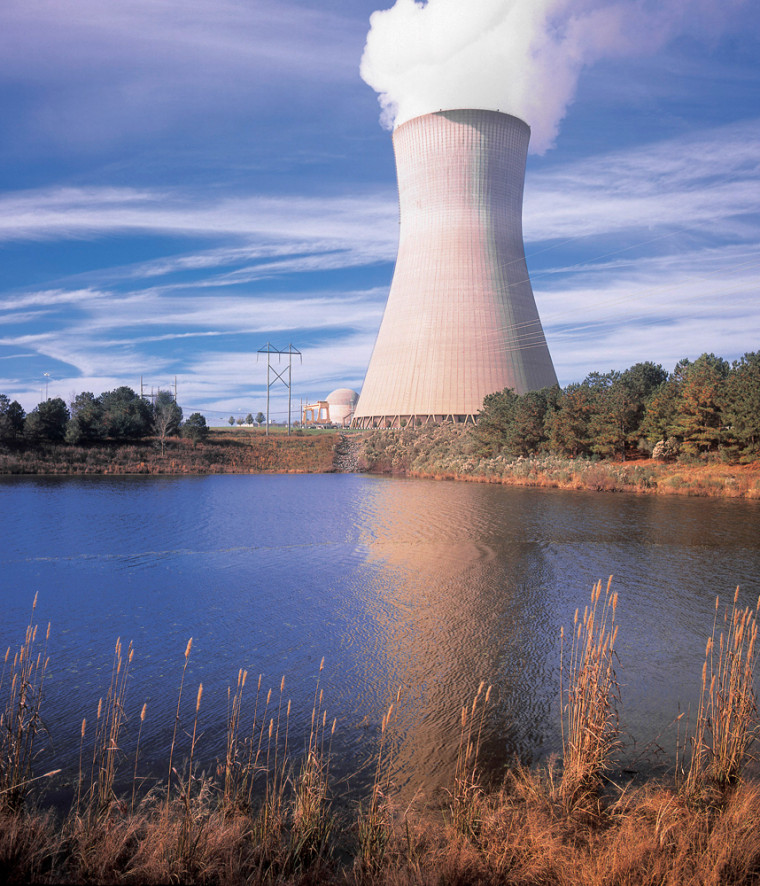Anti-nuclear activists and a major power company were gearing up for a prolonged battle after the company, Progress Energy Inc., picked the site where it will seek to build the first nuclear reactor in the United States in more than 30 years.
Progress Energy on Monday chose an existing nuclear power site, its Shearon Harris plant near Raleigh, for the possible construction.
A final decision is years away on whether to actually build a new reactor there. An application to the Nuclear Regulatory Commission would arrive no sooner than late 2007, and if approved, construction could begin in 2010. The new reactor would not come on line until 2016.
“This is still in the early phases,” said company spokesman Keith Poston. “There are many steps along the way where the company could decide not to go forward.”
The utility, which operates five reactors at four locations and serves 1.4 million customers in the Carolinas, is among a handful of companies considering building a new reactor. Charlotte-based Duke Power, which serves 2.1 million customers in the Carolinas, is reviewing 14 potential sites.
The last order for a new nuclear power plant came in 1973. The partial meltdown at the Three Mile Island facility in Pennsylvania in 1979 led utilities to cancel plans for new plants, although several dozen already under construction were completed.
Nuclear momentum, obstacles
Today, about 20 percent of the U.S. gets its electricity from nuclear reactors. The growing demand for power in the booming Southeast has supporters touting the advantages of nuclear power, among them a lack of emissions that contribute to global warming. In September, President Bush signed an energy bill offering millions of dollars in incentives for building nuclear reactors.
Progress Energy said Monday there are plenty of factors that could stop the project — public and political support, growth and customer demand forecasts, and economic conditions. The cost of such a plant would be $2 billion to $3 billion.
But the decision to build the reactor at an existing location could streamline the project in a number of ways, said Duke University ecology professor Norman Christensen Jr. Along with saving building costs, the company has already addressed questions about the plant’s possible impact on the environment.
“No one complains as much if you’re going to make the landfill that already exists bigger,” he said.
Shearon Harris, about 25 miles southwest of Raleigh, went on line with one reactor in 1987. Progress said the site was picked for a possible new reactor from among 13 candidates in the Carolinas, primarily because its transmission lines can handle additional loads and it’s near the Cape Fear River and Harris Lake, which can supply enough water to cool a pair of reactors.
Activists file complaint
The company’s decision to build at Shearon Harris also comes with a built-in opposition, especially those who oppose the company’s desire to expand nuclear waste storage on the site.
That includes Jim Warren, executive director of the Durham nonprofit N.C. Waste Awareness and Reduction Network, who said Monday his group remains hopeful that Progress Energy will ultimately decide against building a new reactor.
“We are certainly taking it very seriously because you can never count on even top corporate managers making good decisions when there’s a lot of money being offered,” he said.
Joined by the Washington-based Union for Concerned Scientists, NC WARN filed a complaint last month with the Nuclear Regulatory Commission, alleging that security guards worked while injured, slept during their shifts and cheated on licensing tests, and that some security equipment was broken.
Poston said the commission completed its on-site inspection a week ago and found no problems that required immediate action. He said the utility hasn’t seen a comprehensive report from agency inspectors, but believes the plant is safe.
Florida site next?
Progress Energy is expected to announce by April a site for a new nuclear reactor in Florida, where the company has an additional 1.5 million customers in the central and northern parts of the state.
Poston said new reactors may ultimately prove to be the utility’s best means of meeting skyrocketing demand despite the high start-up costs.
Progress Energy estimates it added more than 550 customers per week over the past year in the Carolinas, and will add 300,000 more over the coming decade. At the same time, natural gas and oil prices are going up, and coal-fired plants may face stricter emission rules, while renewable energy sources and conservation will provide only a fraction of the power needed, he said.
“When you’re talking about baseload generation, there are only a few options,” Poston said.
